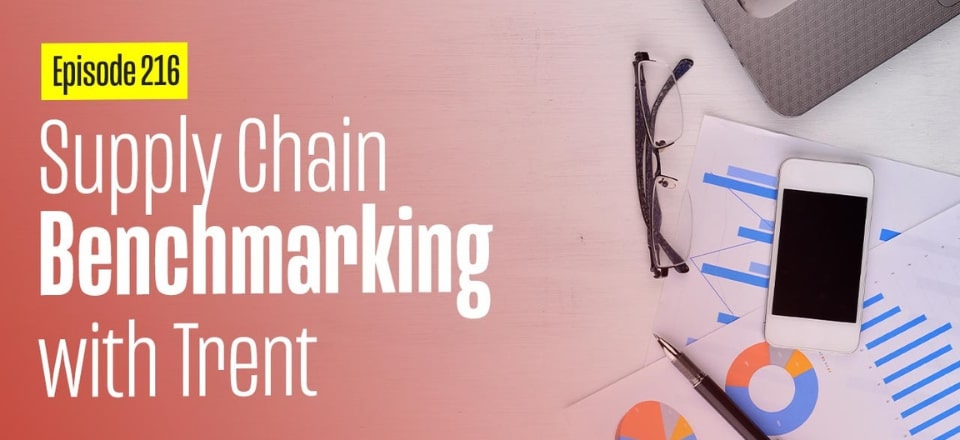Supply chain benchmarking covers many areas. Understanding Supply Chain Benchmarking reveals its importance and implementation strategies.
Companies use various benchmarking practices to improve performance.
Trent Morris will provide insights into these topics.
Watch the video below!
Exploring Supply Chain Benchmarking with Trent Morris
Welcome back to another week of insightful discussion on supply chain benchmarking. Today, I’m excited to have Trent Morris join us again. Trent is a familiar face and a well-respected name in the field, and he’s here to shed light on the current state of benchmarking, especially in terms of cost.
The Importance of Cost Benchmarking
Trent explained that cost benchmarking has become a key focus recently. With rising costs and decreasing demand, businesses need to ensure their expenses are managed effectively. Rather than relying on costly and time-consuming processes like RFPs, cost benchmarking offers a more efficient way to determine if your logistics costs are in line with industry standards.
Rethinking Traditional Benchmarking Methods
I’ve always felt uneasy about using RFPs solely for benchmarking. It can be unfair to put potential suppliers through a detailed bidding process just for comparison. Trent agrees, noting that responding to RFPs can be expensive for suppliers. We both believe it’s important to use these processes only for serious sourcing, not just for benchmarking.
Practical Approaches and Alternatives
Trent shared his approach to effective benchmarking, which involves collecting a year’s worth of transaction data in areas like transport, warehousing, and ocean freight. This data is compared to industry standards and verified through third-party associations. If needed, Trent’s team might issue a small RFI for additional information, making it clear that the goal is benchmarking, not immediate sourcing.
For those who prefer not to hire a consultant, there are other options. Industry reports like the Drewry World Container Index and the Australian Institute of Petroleum’s fuel price index can provide useful insights. Additionally, some consultants offer preliminary evaluations of trade lanes to help determine if a full benchmarking exercise is worthwhile.
Networking and Supplier Relationships
Networking with industry peers and potential suppliers is another valuable approach. Informal comparisons and market insights from these interactions can help you understand your position in the market. Maintaining open, honest relationships with your current suppliers can also provide insights into market trends and potential cost-saving opportunities.
Watch the full video for detailed discussion.
Related articles on this topic have appeared throughout our website, check them out:
- Freight Benchmarking: What Is It? Why Do It?
- How to Select the Right KPIs for Supply Chain Benchmarking
- The What, Why, How of Supply Chain Benchmarking
- Common Sense Warehouse Performance Metrics for Supply Chain Benchmarking
- 8 Uses for Supply Chain Benchmarking and Their Most Valuable Benefits
Editor’s Note: The content of this post was originally published on Logistics Bureau’s website dated November 15, 2023, under the title “Supply Chain Benchmarking with Trent Morris“.




